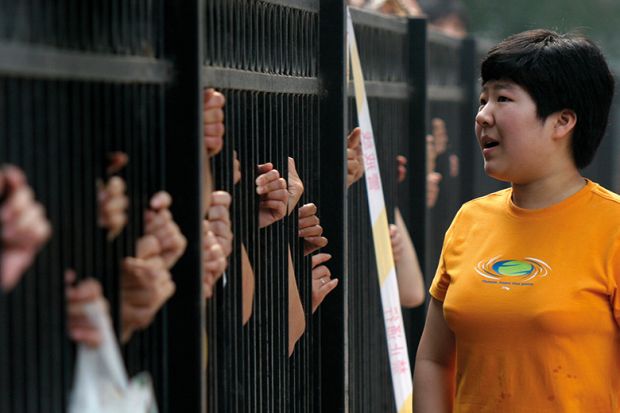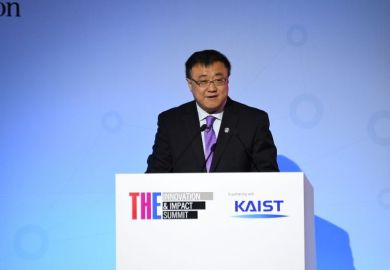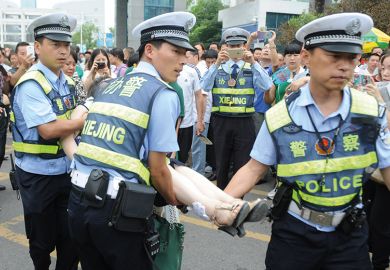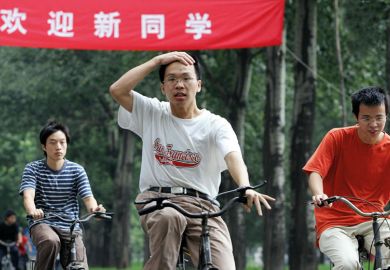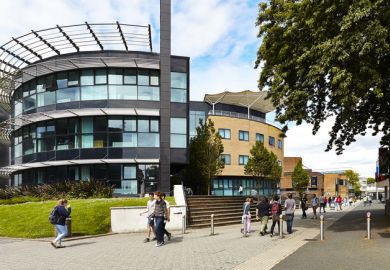Academics have called on China to phase out its university enrolment quotas after a rare study explored the depth of public opposition to the policy.
Xiaolei Qin of Nanjing Normal University and Ross Buchanan of the University of Texas at Austin describe the provincial quotas linked to the notoriously stressful gao kao admissions tests as “a blatant violation of citizens’ rights to educational equality granted by China’s constitution”.
Writing in Higher Education Policy, they say the quota system “strongly favours” students from the three big cities of Beijing, Shanghai and Tianjin, who can typically enter top universities with “dramatically lower” gao kao scores than those from 23 provinces, even though provincial students already have “fewer education resources at their disposal”. About 10 million young people take the test each year.
The inequalities are particularly marked when considering admission to universities in the top-tier Project 985 excellence initiative and the second-level Project 211 scheme: for example, about 5.6 per cent of gao kao entrants from Shanghai entered Project 985 universities in 2016, say Professor Qin and Mr Buchanan, compared with 1.2 per cent of their counterparts from Henan province.
Cities are streets ahead
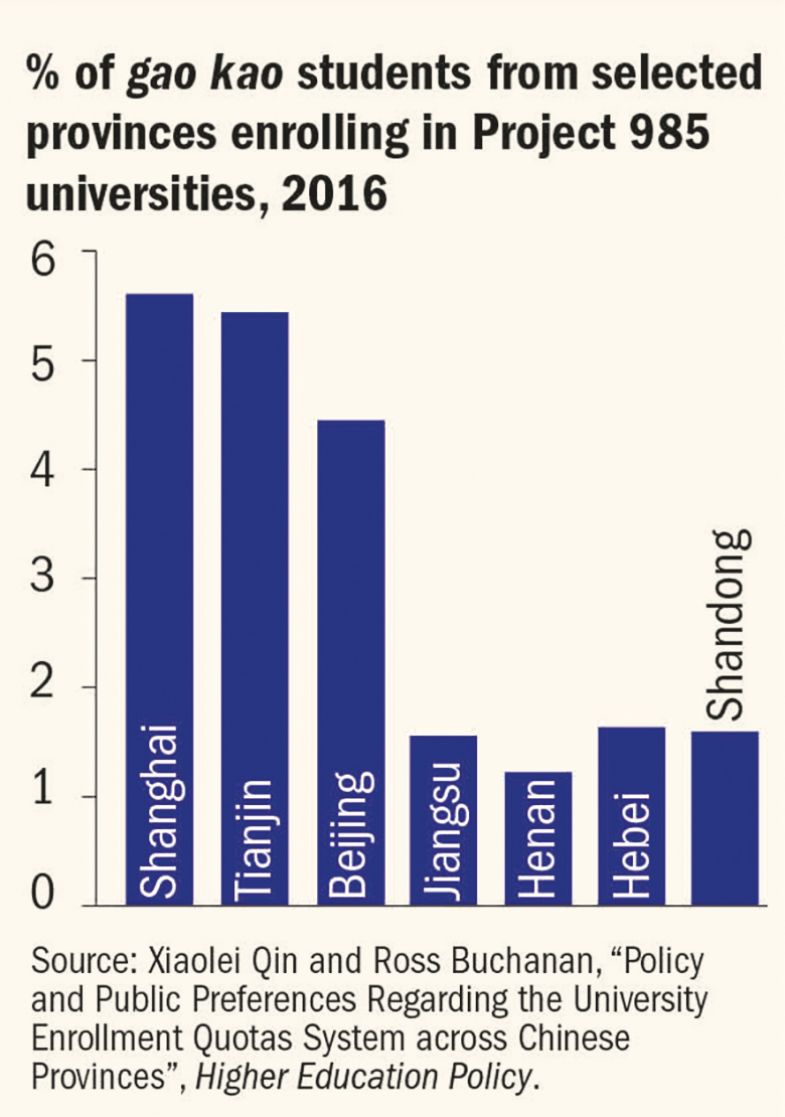
The disadvantages have given rise to “gao kao migration”, where families leave low-quota provinces and move to more privileged cities, and have been a factor in some wealthy parents’ decisions to send their children to study overseas.
At times, unrest has spilled on to the streets. In 2016, the Ministry of Education ordered cuts to enrolment quotas in many populous provinces but not in the big cities, resulting in thousands of parents protesting in Hebei, Hubei, Henan and Jiangsu provinces.
The authorities swiftly moved to reassure parents that the admission rate for first-tier provincial universities would not be lower than it was the year before, Professor Qin and Mr Buchanan write.
However, despite modest reforms, the government “still mostly preserves the jealously guarded privileges of the regime’s favoured constituencies”, the pair continue. In supplementary materials, they note that a “large segment of China’s political and economic elite live in Beijing, Tianjin, and Shanghai”, giving them “obvious incentives…to preserve their privileged status”.
Lacking high-quality surveys from which to gauge public opinion, Professor Qin and Mr Buchanan – who, in an unusual twist, received funding from a Chinese government agency, the National Planning Office for Philosophy and Social Science – turned to sources such as the search index of Baidu, a popular Chinese search engine.
They found widespread unhappiness with the quota system outside the three favoured cities. Netizens “loudly express their grievances on social media”, referring to big cities as “paradise” and some provinces as “hell”, according to Professor Qin and Mr Buchanan, who found that changes in quotas could be linked directly to outpourings of complaints online.
Professor Qin and Mr Buchanan call for “deep reform” to phase out the quota system, with the exception of preserving modest advantages given to ethnic minority autonomous regions with “especially poor higher education resources”. Recruitment to first-tier universities should better reflect the proportion of gao kao takers in each province, adjusted for local government investment, they say.
Furthermore, they argue that changes should be made publicly and openly, and by an independent body that takes in and acts on input from academics and the public.
Yu Zhu, professor of economics at the University of Dundee, said several studies had shown that “less privileged students are finding it increasingly difficult to enrol in the most selective universities”.
He is the co-author, with academics from Shanghai Lixin University of Accounting and Finance, of a separate study that showed the effects of those inequalities on Chinese graduates by calculating the increases in monthly salaries associated with each extra year of higher education.
Students attending colleges and “ordinary universities” had returns of 8 per cent to 10 per cent, while those from key prestigious universities enjoyed returns of 12 per cent to 16 per cent.
The study, published last month in Studies in Higher Education, shows that the expansion of China’s tertiary sector over the last two decades has resulted in reduced returns for all graduates, except students of certain subjects at leading universities.
“While higher education has become more accessible in China as a whole due to expansion, it is probably also getting more competitive than before for the most prestigious institutions and/or subjects,” Professor Zhu said.
POSTSCRIPT:
Print headline: Chinese rail at admissions quota bias
Register to continue
Why register?
- Registration is free and only takes a moment
- Once registered, you can read 3 articles a month
- Sign up for our newsletter
Subscribe
Or subscribe for unlimited access to:
- Unlimited access to news, views, insights & reviews
- Digital editions
- Digital access to THE’s university and college rankings analysis
Already registered or a current subscriber?
